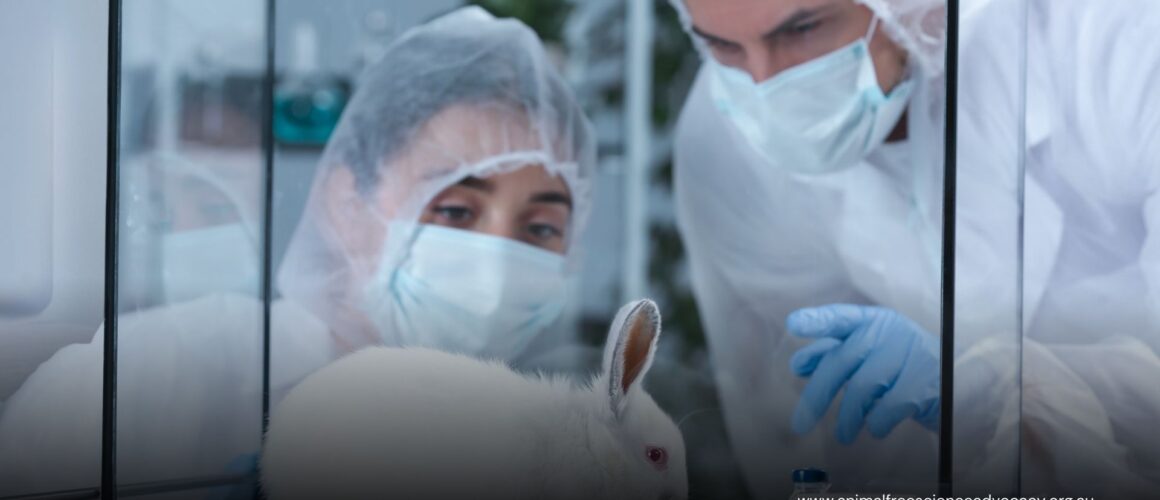In February 2019, the Australian Senate passed the Industrial Chemicals Act 2019, designed to ensure that chemicals used in consumer products are safe for consumers and the environment. It is part of a package of Acts and establishes a legislative framework for the new Australian Industrial Chemicals Introduction Scheme (AICIS). The ACIS scheme starts on 1 July 2020.
Under the new legislation, industrial chemicals for sole use in cosmetics can be imported or manufactured only if they provide safety data that do not rely on new animal testing. This provides a disincentive for companies to conduct toxicity (safety) testing on animals, because such data will not be acceptable under the new legislation.
Humane Society International estimates that around 500,000 animals suffer and die in cruel and outdated tests of cosmetic ingredients or products each year around the world. Rabbits, guinea pigs, mice and rats are the most common animals used to test cosmetics, subjected to having cosmetic chemicals dripped in their eyes, spread on their shaved skin, or force fed to them orally in massive, even lethal doses.
Such suffering is completely unnecessary. Validated alternatives include:
- in vitro testing methods – which use reconstructed tissues, whole cells or parts of cells;
- in silico methods – which involve computer simulations of effects based on chemical structure and physical properties; and
- read across methods – where the effects for one chemical are predicted using data for the same effect from another chemical, which is considered to be similar in terms of chemical structure, physico-chemical properties or bioactivity.
Companies can prove their products are safe by using established ingredients. There are, for example, almost 20,000 ingredients in the European Union’s database for which safety data is available.
Although no animal testing of cosmetics has occurred in Australia for years, the new Act will ensure that we don’t slip backwards, and that products safety tested by animal testing overseas post July 1 2020 cannot be imported to Australia.
Animal-Free Science Advocacy (AFSA) welcomes the AICIS as a means to restrict the use of new animal data. However, this is not a full ban. There are many exemptions which permit use of new animal test data. In addition, there are some significant ‘loopholes’:
- Companies can continue to use existing animal test data obtained from tests conducted prior to 1 July 2020
- Rules only relate to chemical ingredients of cosmetics, not to finished products
- Many cosmetic ingredients may also have other industrial uses and thus are not classified as sole use. These are known as multi-use chemicals, for example, perfumes and scents used in cosmetics and cleaning products.
These limitations mean that cosmetics on sale in Australia post July 1 may well have been tested on animals and will remain on sale. Additionally, it should be noted that chemicals in Australia are regulated according to their use. AICIS regulates chemicals with an industrial use. The way AICIS defines industrial use is by exclusion. So, a chemical is an industrial chemical if it’s NOT for a therapeutic, food, agricultural or veterinary use. These are regulated by other bodies. Chemicals for human therapeutic use, such as medicines, are regulated by the Therapeutic Goods Administration (TGA) for example. Very few finished cosmetic products contain 100% sole use purpose ingredients, which means that majority of cosmetics, household and cleaning products are still at risk of being subject to animal testing (for therapeutic, agricultural, food, or pharmaceutical purposes).
With respect to these limitations, AFSA joined Humane Research International and Choose Cruelty Free during the drafting of the Act to call for commitments to address the shortfalls. Despite these commitments being publicly made by the then Minister McKenzie, they have yet to be honoured in full, and we will continue to campaign for the strengthening of the Act.
We also call for applicable approaches and tools used in toxicology and regulatory testing to be applied to biomedical research, for instance, adverse outcome pathways. Drivers to change with toxicity testing have been collaboration between regulators, academics, governments and pharmaceutical companies, realising that animal testing is expensive, time consuming and unreliable. Those same drivers are evident for biomedical research.
We urge those wishing to make cruelty-free choices to use their purchasing power wisely. More than 1000 beauty brands are certified cruelty-free globally, including popular Australian brands such as LUSH, Natures Organics, Australis, and many others listed on the Choose Cruelty Free list.
ARTICLE UPDATE: In June 2021, Choose Cruelty Free (CCF) joined the Cruelty Free International global family. The move will support growing interest from Australian consumers in cruelty free products and from brands in Australia in obtaining Leaping Bunny approval. Read more here.
Search for Australian products with Leaping Bunning approval here.
